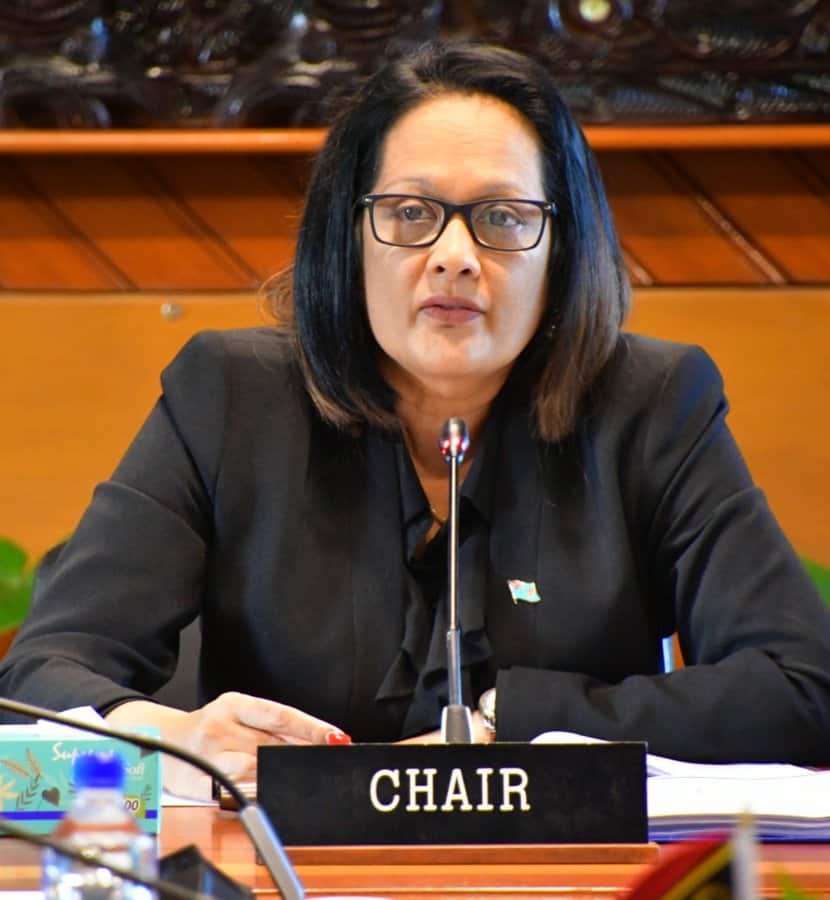The message from the first ever Pacific Islands Forum Women Leaders meeting last month was clear, commitments they made a decade ago to gender equality need revitalisation.
In the decade since the signing the Pacific Leaders Gender Equality Declaration (PLGED), progress in the status of women has been mixed. There have been improvements in eliminating violence against women and girls, and in gender responsive programmes, policies, legislation. The number of women in corporate leadership positions in our region is higher than the global average. However, a review of the declaration observed a lack of tracking, targets and accountability, and noted that the commitment to improved gender equality is not always reflected in national budgets.
This review, which will go to the Forum Leaders for consideration in Suva this coming week, found while it was an important tool for advocacy, there are “weaknesses in ownership, political will and low levels of visibility and utility at both regional and national level.”
PIF Secretary General, Henry Puna, affirmed these findings. “The review actually emphasises that leaders must take ownership, they must make the commitment, a serious commitment to implementing the spirit and the gender agenda set out in the declaration.
“And I’m counting on the female leaders of the Pacific to put pressure on our leaders,” he said after the meeting.
In her opening remarks to the women leaders meeting, New Zealand Prime Minister, Jacinda Ardern, also called for action beyond dialogue: “Unfortunately, women and girls across our Blue Pacific Continent experience unacceptable rates of violence, limited access to sexual and reproductive health, rights, and economic security.
“These myriad challenges highlight the magnitude and urgency of our collective action.”
Meeting chair, Fiji’s Minister for Women, Children and Poverty Alleviation, Rosy Akbar, noted the role of culture in achieving gender equality.
“We make laws, we have very good laws, but it’s a mindset thing, and in the Pacific, it is difficult to change because it is embedded in our culture,” Akbar told journalists after the meeting.
“The government is using education to change the mindset of our younger generation, and it might take a whole generation to change how women are perceived in the Pacific.”
Palau’s Vice President and Minister of Justice, J. Uduch Sengebau Senior, spoke of the positive role that women as cultural custodians can play in leadership.
“As women, we are so deeply interconnected to our communities, and have a holistic perspective of the land we work, the sea we depend on for its bounty, and of our own needs as well as those of our families and communities. Because of these, women’s voices in decision and policy making are imperative for lasting, sustainable development,” she told the meeting.
The PLGED review highlighted poor political representation of women as the biggest challenge, noting the Pacific has the lowest proportion of women in parliament in the world.
While some countries and provinces (Samoa, Bougainville) have sought to address this through temporary special measures (TSM) and other mechanisms, Akbar doesn’t believe it is appropriate in Fiji. “I think women in Fiji are capable of fighting for a seat in parliament without the use of TSM to secure a seat,” she told the media.
The place of women at the table during security discussions and negotiations, particularly at this point of time when much of the region’s international and development relationships are being framed by security ‘concerns’, was also questioned.
Secretary Puna said human security is a core part of the gender equality declaration, and they are working to ensure gender and women are part of discussions around peace and security.
“It’s not just focusing on women as part of law enforcement but also peacemakers; the revitalisation of the Pacific Leaders’ Gender Equality declaration and the 2050 strategy will include all that in the work that we do,” he said.
As one of just two female leaders in the Pacific Islands Forum, Samoa’s Fiame Naomi Mata’afa said, “If ever there was a more appropriate time to further advance gender equality priorities and integrate gender perspectives across the raft of challenges that we face in our Blue Pacific region, that time is now.’
Like Puna, she believes in the power of Pacific women to advance this agenda, telling the meeting, “There is an expression in Samoan, ‘E au le ina‟ilau a tamaitai’, ‘Women achieve what they set out to do.”
